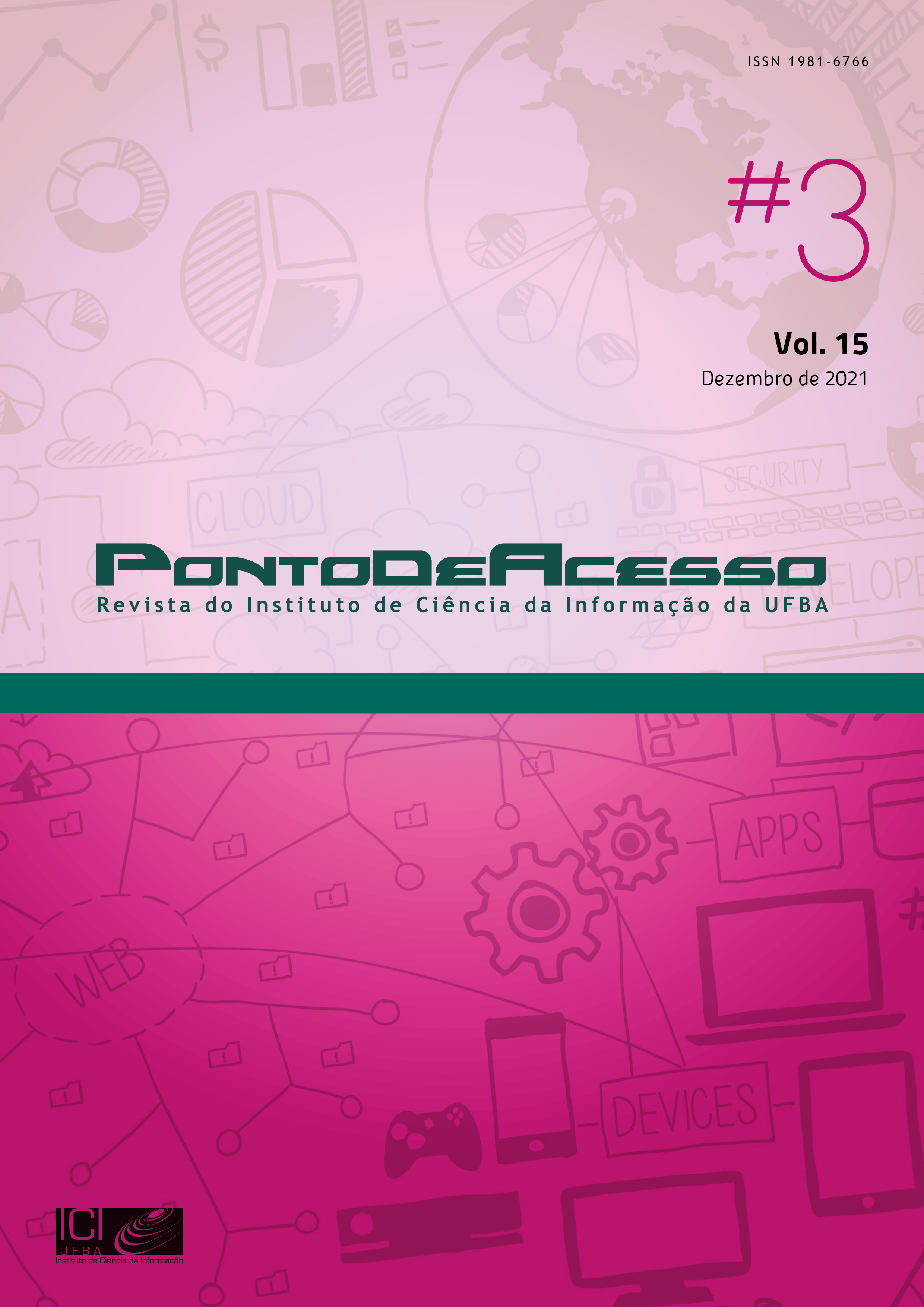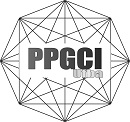A ORGANIZAÇÃO DA INFORMAÇÃO E A AGENDA 2030
A INTEROPERABILIDADE E O DESENVOLVIMENTO SUSTENTÁVEL
DOI:
https://doi.org/10.9771/rpa.v15i3.47474Palabras clave:
Organização da Informação, Agenda 2030 da ONU, interoperabilidade, desenvolvimento sustentável, metadadosResumen
Este artigo procura compreender a relação entre a interoperabilidade tecnológica e semântica (metainformação) dos sistemas de informação com a sustentabilidade, proposta global da Agenda 2030 das Nações Unidas para o desenvolvimento das nossas sociedades. Através de uma revisão sistemática da literatura e de uma análise dos resultados, pretende-se perceber o contributo da organização da informação e da interoperabilidade para o incremento do desenvolvimento sustentável. Foram colocadas duas questões de investigação: Qual o papel dos sistemas interoperáveis no desenvolvimento ambiental, social e económico? De que forma a organização da informação e a interoperabilidade podem contribuir para o desenvolvimento sustentável? Os resultados mostram que a interoperabilidade é considerada como fundamental para o desenvolvimento sustentável, sobretudo na construção de sistemas de informação integrados e normalizados. O papel dos sistemas interoperáveis no desenvolvimento ambiental, social e económico é relevante, pois a organização da informação e a interoperabilidade contribuem, de forma indireta, mas decisiva, para o desenvolvimento sustentável. Viabilizam a permuta de informação, incentivam a construção de comunidades globais de prática e ultrapassam as limitações e os défices locais. Conclui-se que a organização da informação desempenha um papel crucial e transversal nos projetos, que visam implementar os objetivos do desenvolvimento sustentável.
Descargas
Citas
Adam-blondon, A., Alaux, M., Pommier, C., Cantu, D., Cheng, Z., Cramer, G., Davies, C., Delrot, S., Deluc, L., Di Gaspero, G., Grimplet, J., Fennell, A., Londo, J., Kersey, P., Mattivi, F., Naithani, S., Neveu, P., Nikolski, M., Pezzotti, M., … Quesneville, H. (2016). Towards an open grapevine information system. Horticulture Research, 3, 16056. Publicly Available Content Database. https://doi.org/10.1038/hortres.2016.56
Baca, M. (Ed.). (2008). Introduction to metadata (2nd ed.). The Getty Research Institute.
Barde, J., Cauquil, P., Chavance, P., & Cury, P. (2011). Safeguarding, integrating and disseminating knowledge on exploited marine ecosystems: The ecoscope. Mediterranean Marine Science, 12(3), 45–52. https://doi.org/10.12681/mms.69
Brascher, M., & Café, L. (2008). Organização da Informação ou Organização do Conhecimento? Diversidade cultural e políticas de informação. IX ENANCIB. http://hdl.handle.net/123456789/809
Buttigieg, P. L., Pafilis, E., Lewis, S. E., Schildhauer, M. P., Walls, R. L., & Mungall, C. J. (2016). The environment ontology in 2016: Bridging domains with increased scope, semantic density, and interoperation. Journal of Biomedical Semantics, 7. https://doi.org/10.1186/s13326-016-0097-6
Buttigieg, P. L., Walls, R., & Thessen, A. (2019). Semantic Interoperability Solutions for the Essential Variables: Focus on biodiversity. Biodiversity Information Science and Standards. Publicly Available Content Database. https://doi.org/10.3897/biss.3.36234
Charalabidis, Y., Zuiderwijk, A., Alexopoulos, C., Janssen, M., Lampoltshammer, T., & Ferro, E. (2018). The World of Open Data: Concepts, Methods, Tools and Experiences. Springer.
Chatterjee, A. (2017). Elements of Information Organization and Dissemination. Chandos.
Eissa Alreshidi. (2019). Smart Sustainable Agriculture (SSA) Solution Underpinned by Internet of Things (IoT) and Artificial Intelligence (AI). ArXiv.Org. Publicly Available Content Database. https://doi.org/10.14569/IJACSA.2019.0100513
European Commission. (2021). INSPIRE. INSPIRE Knowledge Base. https://inspire.ec.europa.eu/
Frické, M. (2012). Logic and the Organization of Information. Springer.
Giuliani, G., Dao, H., De Bono, A., Chatenoux, B., Allenbach, K., De Laborie, P., Rodila, D., Alexandris, N., & Peduzzi, P. (2017). Live Monitoring of Earth Surface (LiMES): A framework for monitoring environmental changes from Earth Observations. Remote Sensing of Environment, 202, 222–233. https://doi.org/10.1016/j.rse.2017.05.040
Grandcolas, P. (2019). The Rise of “Digital Biology”: We need not only open, FAIR but also sustainable data! Biodiversity Information Science and Standards. Publicly Available Content Database. https://doi.org/10.3897/biss.3.37508
Hardisty, A. R., Michener, W. K., Agosti, D., Alonso García, E., Bastin, L., Belbin, L., Bowser, A., Buttigieg, P. L., Canhos, D. A. L., Egloff, W., De Giovanni, R., Figueira, R., Groom, Q., Guralnick, R. P., Hobern, D., Hugo, W., Koureas, D., Ji, L., Los, W., … Kissling, W. D. (2019). The Bari Manifesto: An interoperability framework for essential biodiversity variables. Ecological Informatics, 49, 22–31.
https://doi.org/10.1016/j.ecoinf.2018.11.003
Hjorland, B. (2012). Knowledge Organization = Information Organization? Categories, contexts and relations in knowledge organization: proceedings, 8–14. https://static-curis.ku.dk/portal/files/47028310/Abstract_KO_and_IO_full.pdf
Hörstmann, C., Buttigieg, P. L., Simpson, P., Pearlman, J., & Waite, A. M. (2021). Perspectives on Documenting Methods to Create Ocean Best Practices. Frontiers in Marine Science, 7. https://doi.org/10.3389/fmars.2020.556234
Ivánová, I., Brown, N., Fraser, R., Tengku, N., & Rubinov, E. (2019). Fair and standard access to spatial data as the means for achieving sustainable development goals. 42(4/W20), 33–39. https://doi.org/10.5194/isprs-archives-XLII-4-W20-33-2019
Jeong, S., Kim, S., & Kim, J. (2020). City Data Hub: Implementation of Standard-Based Smart City Data Platform for Interoperability. Sensors, 20(23). https://doi.org/10.3390/s20237000
Joudrey, D. N., & Taylor, A. G. (2018). The Organization of Information (4th ed.). Libraries Unlimited.
Kissling, W. D., Ahumada, J. A., Bowser, A., Fernandez, M., Fernández, N., García, E. A., Guralnick, R. P., Isaac, N. J. B., Kelling, S., Los, W., McRae, L., Mihoub, J.-B., Obst, M., Santamaria, M., Skidmore, A. K., Williams, K. J., Agosti, D., Amariles, D., Arvanitidis, C., … Hardisty, A. R. (2018). Building essential biodiversity variables (EBVs) of species distribution and abundance at a global scale. Biological Reviews, 93(1), 600–625. https://doi.org/10.1111/brv.12359
Leyh, W. (2018). A conceptual building-block and practical openstreetmap-interface for sharing references to hydrologic features (Vol. 600, p. 148). https://doi.org/10.1007/978-3-319-60450-3_14
Magagna, B., Rosati, I., Stoica, M., Schindler, S., Moncoiffe, G., Devaraju, A., Peterseil, J., & Huber, R. (2021). The I-ADOPT Interoperability Framework for FAIRer data descriptions of biodiversity. ArXiv.Org. Publicly Available Content Database.
Martínez, I., Zalba, B., Trillo-Lado, R., Blanco, T., Cambra, D., & Casas, R. (2021). Internet of Things (IoT) as Sustainable Development Goals (SDG) Enabling Technology towards Smart Readiness Indicators (SRI) for University Buildings. Sustainability, 13(14), 7647. Coronavirus Research Database; Publicly Available Content Database. https://doi.org/10.3390/su13147647
Nwankwo, W., & Ukhurebor, K. E. (2021). Big data analytics: A single window IoT-enabled climate variability system for all-year-round vegetable cultivation. IOP Conference Series. Earth and Environmental Science, 655(1). https://doi.org/10.1088/1755-1315/655/1/012030
Page, M. J., McKenzie, J. E., Bossuyt, P. M., Boutron, I., Hoffmann, T. C., Mulrow, C. D., Shamseer, L., Tetzlaff, J. M., Akl, E. A., Brennan, S. E., Chou, R., Glanville, J., Grimshaw, J. M., Hróbjartsson, A., Lalu, M. M., Li, T., Loder, E. W., Mayo-Wilson, E., McDonald, S., … Moher, D. (2021). The PRISMA 2020 statement: An updated guideline for reporting systematic reviews. BMJ, 372, n71. https://doi.org/10.1136/bmj.n71
Park, J.-R., & Howarth, L. C. (Eds.). (2013). New directions in information organization. Emerald.
Pearlman, J., Buttigieg, P. L., Bushnell, M., Delgado, C., Hermes, J., Heslop, E., Hörstmann, C., Isensee, K., Karstensen, J., Lambert, A., Lara-Lopez, A., Muller-Karger, F., Munoz Mas, C., Pearlman, F., Pissierssens, P., Przeslawski, R., Simpson, P., van Stavel, J., & Venkatesan, R. (2021). Evolving and Sustaining Ocean Best Practices to Enable Interoperability in the UN Decade of Ocean Science for Sustainable Development. Frontiers in Marine Science. https://doi.org/10.3389/fmars.2021.619685
Pennington, D. R., & Cagnazzo, L. (2019). Connecting the silos: Implementations and perceptions of linked data across European libraries. Journal of Documentation, 75(3), 643–666. https://doi.org/10.1108/JD-07-2018-0117
Piedra, N., & Suárez, J. P. (2018). Hacia la Interoperabilidad Semántica para el Manejo Inteligente y Sostenible de Territorios de Alta Biodiversidad usando SmartLand-LD. Revista Ibérica de Sistemas e Tecnologias de Informação, 26, 104–121. https://doi.org/10.17013/risti.26.104-121
Pinardi, N., Stander, J., Legler, D. M., O’Brien, K., Boyer, T., Cuff, T., Bahurel, P., Belbeoch, M., Belov, S., Brunner, S., Burger, E., Carval, T., Chang-Seng, D., Charpentier, E., Ciliberti, S., Coppini, G., Fischer, A., Freeman, E., Gallage, C., … Xinyang, Y. (2019). The Joint IOC (of UNESCO) and WMO Collaborative Effort for Met-Ocean Services. Frontiers in Marine Science. https://doi.org/10.3389/fmars.2019.00410
Rasmussen, C. H., & Hjorland, B. (2021). Libraries, archives and museums (LAM): Conceptual issues with focus on their convergence. ISKO Encyclopedia of Knowledge Organization. https://www.isko.org/cyclo/lam
Riley, J. (2017). Understanding metadata: What is metadata, and what is it for? National Information Standards Organization (NISO).
Rodríguez Bravo, B. (2011). Apuntes sobre representación y organización de la información. Trea.
Rowley, J., & Farrow, J. (2018). Organizing knowledge: An Introduction to Managing Access to Information (3rd ed.). Routledge.
Santos, R., Huynh, D., Suchith Anand, Ray, R. V., Mayes, S., & Leibovici, D. (2016). A geoprocessing modelling interoperable framework for AgriGIS using open data and open standards. PeerJ PrePrints. https://doi.org/10.7287/peerj.preprints.2136v2
Scholz, J., De Meyer, A., Marques, A. S., Pinho, T. M., Boaventura-Cunha, J., Van Orshoven, J., Rosset, C., Künzi, J., Kaarle, J., & Nummila, K. (2018). Digital Technologies for Forest Supply Chain Optimization: Existing Solutions and Future Trends. Environmental Management, 62(6), 1108–1133. https://doi.org/10.1007/s00267-018-1095-5
Scott, G., & Rajabifard, A. (2017). Sustainable development and geospatial information: A strategic framework for integrating a global policy agenda into national geospatial capabilities. Geo-Spatial Information Science, 20(2). https://doi.org/10.1080/10095020.2017.1325594
Silva, C. G. da. (2003). Portugal e a Lusofonia no âmbito do Desenvolvimento Sustentável. Espaço S: Revista de Educação Social, 6 (Edição Especial), 105–118.
Smith, V., Gorman, K., Addink, W., Arvanitidis, C., Casino, A., Dixey, K., Dröge, G., Groom, Q., Haston, E., Hobern, D., Knapp, S., Koureas, D., Livermore, L., & Seberg, O. (2019). SYNTHESYS+ Abridged Grant Proposal. RIO, 637–644. https://doi.org/10.3897/rio.5.e46404
Svenonius, E. (2000). The Intellectual Foundation of Information Organization. The MIT Press.
SYNTHESIS. (2021). SYNTHESYS - an integrated European infrastructure for researchers in the natural sciences. SYNTHESIS. https://www.synthesys.info/
Turillazzi, B., Leoni, G., Gaspari, J., Massari, M., & Boulanger, S. O. M. (2021). Cultural heritage and digital tools: The ROCK interoperable platform. International Journal of Environmental Impacts, 4(3), 276–288. Coronavirus Research Database; Publicly Available Content Database. https://doi.org/10.2495/EI-V4-N3-276-288
U. N. Environment. (2020, Julho 23). SDG Interface Ontology. UNEP - UN Environment Programme. http://www.unep.org/explore-topics/sustainable-development-goals/what-we-do/monitoring-progress/sdg-interface-ontology
United Nations. (2015). Transforming our world: The 2030 Agenda for Sustainable Development. United Nations.
United Nations. (2021). The Decade of Ocean Science for Sustainable Development. https://www.oceandecade.org/
Vinci, M., Giorgetti, A., & Lipizer, M. (2017). The role of EMODnet Chemistry in the European challenge for Good Environmental Status. Natural Hazards and Earth System Sciences, 17(2), 197–204. https://doi.org/10.5194/nhess-17-197-2017
Walls, R. L., Deck, J., Guralnick, R., Baskauf, S., Beaman, R., Blum, S., Bowers, S., Buttigieg, P. L., Davies, N., Endresen, D., Gandolfo, M. A., Hanner, R., Janning, A., Krishtalka, L., Matsunaga, A., Midford, P., Morrison, N., Éamonn Ó Tuama, Schildhauer, M., … Wooley, J. (2014).
Semantics in Support of Biodiversity Knowledge Discovery: An Introduction to the Biological Collections Ontology and Related Ontologies. PLoS One, 9(3). https://doi.org/10.1371/journal.pone.0089606
Wilkinson, M. D., Dumontier, M., Aalbersberg, Ij. J., Appleton, G., Axton, M., Baak, A., Blomberg, N., Boiten, J.-W., da Silva Santos, L. B., Bourne, P. E., Bouwman, J., Brookes, A. J., Clark, T., Crosas, M., Dillo, I., Dumon, O., Edmunds, S., Evelo, C. T., Finkers, R., … Mons, B. (2016). The FAIR Guiding Principles for scientific data management and stewardship. Scientific Data, 3(1), 160018. https://doi.org/10.1038/sdata.2016.18
Zeng, M. (2019). Interoperability. ISKO Encyclopedia of Knowledge Organization. https://www.isko.org/cyclo/interoperability
Descargas
Publicado
Cómo citar
Número
Sección
Licencia
Derechos de autor 2021 PontodeAcesso

Esta obra está bajo una licencia internacional Creative Commons Atribución 4.0.
A PontodeAcesso utiliza a licença do Creative Commons (CC), preservando assim, a integridade dos artigos em ambiente de acesso aberto. A revista permite que o autor retenha os direitos de publicação sem restrições.








